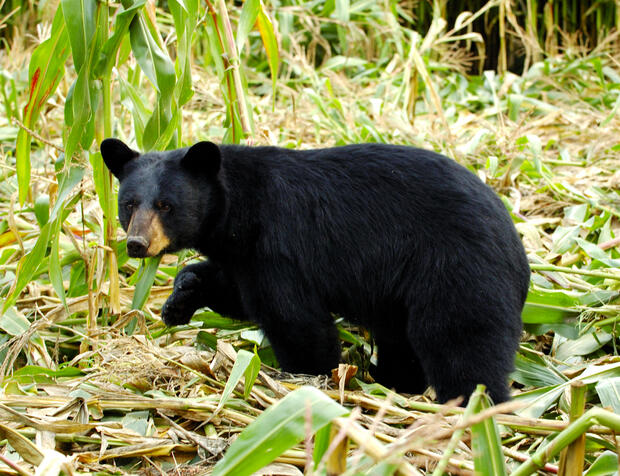Reducing agricultural damage
It is normal behavior for wildlife to take advantage of agricultural resources in their environment. To reduce damage to crops, livestock, hives, and property, farmers must be proactive. Every situation is different, so techniques and their level of effectiveness can vary. Use the links below to learn how you can take steps to lessen agricultural damage from different types of wildlife.
Get advice from MassWildlife
If you are experiencing agricultural damage from wildlife, contact your nearest MassWildlife District Office. MassWildlife biologists will provide you with advice that can lessen the problem.
Get connected with hunters
Allowing licensed hunters to harvest deer, bear, turkey, and other wildlife from your property during the regulated hunting season is one of the most effective long-term solutions for reducing agricultural damage from wildlife. A great way to get connected to hunters in your area is through your local sportsmen’s club. If needed, use a Landowner/land user agreement card to support farmer and hunter communication.
Note: According to Massachusetts law, landowners who allow the use of their property for recreation without charging a fee are not liable for injuries to recreational users of the property, except in cases of willful, wanton, or reckless conduct by the owner (MGL Ch.21 Sec.17c).
Hunt your own property
Farmers who earn at least 50% of their annual income from agricultural practices or landowners who own more than 300 contiguous acres of undeveloped property qualify to hunt on their own property during the legal seasons without a hunting license. All hunting regulations including seasons, bag limits, harvest reporting, and implements apply. To hunt deer, turkey, or bear on your property without a hunting license, you must apply for and be issued a Farmer/Landowner permit. See Farmer/Landowner permit section below.
Note: If you want to hunt in a location other than the approved property, you need a hunting license and any applicable permits. Learn how to qualify for a hunting license and review hunting regulations. If you hunt on both your property and other property, you may harvest no more than two antlered deer per season, but as many antlerless deer as you have permits for.
Farmer/Landowner permit
Farmers that don’t have a hunting license that are interested in hunting deer, turkey, and/or bear on their property may be eligible for a Farmer/Landowner permit. If issued, the Farmer/Landowner permit allows farmers domiciled on the property, members of their immediate family residing on the property, or lessees/tenants residing on the property to hunt on that approved property during the legal hunting seasons. Learn more about the Farmer/Landowner permit.
Section 37
If you are still experiencing agricultural damage after exhausting the options listed above, contact your nearest MassWildlife District office for more information. Under certain conditions, landowners, tenants, members of their immediate families, or persons permanently employed by them may be able to use lethal measures against wildlife in accordance with provisions of Chapter 131, Section 37, Massachusetts General Laws.
Deer damage permit
A deer damage permit (DDP) can be issued to qualified landowners to allow sub-permittees onto their property to address agricultural damage from deer outside the regulated deer hunting season. This may be considered when damage is extensive and other options (regulated hunting, Farmer/Landowner permit, etc.) are not resolving the issue or are not feasible. Contact Martin Feehan at (508) 389-6320 for a consultation.
